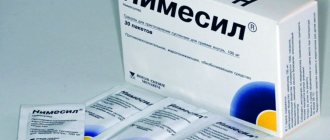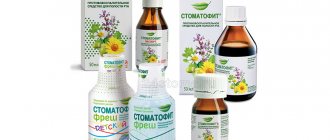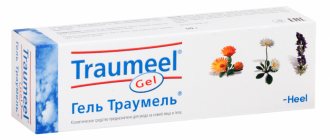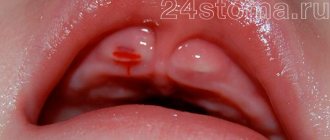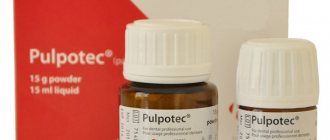Release forms and dosages
The drug is produced in granules, from which a suspension is prepared for oral administration. The granules are placed in sealed bags of 2 g. You can buy Nimesil in packages of 9, 15, 30 sachets. The drug is prescribed only to adults. For elderly people, the dosage is selected individually based on the severity of the disease and the effectiveness of the drug. Take the medicine only after meals.
Composition and active substance
The main active ingredient of Nimesil is Nimesulide. One two-gram sachet of the drug contains one hundred milligrams of the active substance. Nimesulide is supplemented with other components - sucrose, ketomacrogol, anhydrous citric acid, maltodextrin and orange flavor.
Complete analogues of this product
All medications containing nimesulide are complete analogues, that is, identical products. They are available in any form. In terms of properties, indications and contraindications, these analogues are similar to Nimesil. They are made by many pharmaceutical companies. Manufacturers' technologies differ, albeit slightly. So there are many differences between drugs produced by different companies:
- chances of “side effects”;
- bioavailability;
- strength of effects.
Here are the analogues of Nimesil that are more widely known than others:
- nimesulide tablets. , Russian, “Obolenskoye”, “Izvarino-Farma”, “Berezovsky”;
- "Nimulex granulate". Manufacturer: in Romania;
- "Flolide granulate." in Italy;
- Nimesulide Teva tablets. Manufacturer: Bluepharma Industria in Portugal.
"Nimesulide Teva"
Any nimesulide tablets should be taken either during a meal or after completing it. They should be washed down with not too much water at ambient temperature. The dose and course are the same as for Nimesil.
Since the end of 2013, you can purchase another analogue of the drug “Nimesil”. This is “Affida Fort” - a full-fledged analogue, which is also produced in the form of granulate - the raw material from which the suspension is made. It is manufactured by .
Indications
Nimesil is prescribed to reduce pain and inflammation during the treatment of the following diseases and symptoms:
- acute muscle and musculoskeletal pain;
- toothache;
- pain during the treatment of osteoarthritis;
- dysalgomenorrhea.
In addition, the drug is actively used as an antipyretic for the treatment of acute respiratory viral infections and colds of varying degrees of complexity.
Effect on the body
The drug easily overcomes histohematic barriers and is absorbed from the gastrointestinal tract within 2-3 hours after administration. About half of the drug taken is eliminated by the kidneys. Experimental studies involving patients with clinically confirmed renal failure and healthy volunteers showed that the concentration of nimesulide was within the acceptable range. However, only patients with mild and moderate stages of renal failure were allowed to participate in the study. The next time Nimesil was used, no accumulation of the active substance in the body was detected.
Preparation of a suspension from powder
Each Nimesil sachet contains one dose of the drug. The suspension should be prepared as follows:
- prepare half a glass of boiled water at ambient temperature;
- pour a dose of the drug from the sachet there;
- mix as thoroughly as possible.
It is unacceptable that the water temperature is too high or low. And every particle must be dissolved.
If everything is done correctly, the resulting suspension can be used.
Contraindications
Nimesil is contraindicated in the following cases:
- children under 12 years of age;
- pregnancy and lactation;
- alcohol and drug addiction;
- high sensitivity of the body to the drug or components included in the drug;
- hyperergic and hepatotoxic reactions;
- simultaneous use of Nimesil and drugs with potential hepatotoxicity;
- any inflammatory processes of the gastrointestinal tract, perforation, peptic ulcer, bleeding;
- after undergoing coronary artery bypass surgery;
- febrile attacks and high temperature during ARVI;
- bronchial asthma, recurrent polyposis of the nose and sinuses, accompanied by intolerance to NSAIDs;
- the presence of hemorrhages and bleeding, as well as the presence of diseases accompanied by them;
- if you have problems with blood clotting;
- acute heart, liver and kidney failure.
Compatibility with other drugs
The use of Nimesil with other drugs from the glucorticosteroid group, as well as with antiplatelet inhibitors, selective inhibitors can cause bleeding and provoke the formation of ulcerative inflammation in the gastrointestinal tract. It is also possible to increase anticoagulants, which will provoke the same consequences. If treatment without the use of Nimesil and the listed drugs is unavoidable, it is important to carefully monitor the intake.
When taken simultaneously with diuretics, the components of Nimesil can weaken the effect of the latter by reducing the excretion of sodium and potassium from the body. That is why the use of the drug is not recommended for people with heart and kidney problems. The effect of antihypertensive drugs can also be reduced when taken simultaneously with Nimesil.
Blood pressure medications are also combined with Nimesil with extreme caution. This is especially true for elderly patients. It is important to monitor proper kidney function while taking the drug and regularly drink enough fluids.
The drug can reduce the clearance of lithium. As a result, the concentration and toxicity of the element in the blood plasma increases significantly. If the patient is forced to simultaneously take lithium preparations and Nimesil, it is necessary to strictly monitor lithium levels in the blood plasma.
There was no interaction between Nimesil and antacid drugs, as well as digoxin, theophylline, and cimetidine.
During the research, it was possible to establish that Nimesil can be displaced by salicylic and valproic acids from the sites of their binding to each other. However, this relationship does not affect the overall effect of taking these drugs together.
Side effects
For toothache, headaches , colds, and menstruation, Nimesil is often used in medical practice, which can cause the following side effects:
- allergic reactions: sweating , rash , itching , erythema , anaphylactoid reactions , dermatitis , urticaria , erythema multiforme , angioedema , Stevens-Johnson syndrome , Lyell's syndrome ;
- hematopoietic disorders: eosinophilia , pacitopenia , anemia , thrombocytopenia , hemorrhagic syndrome , thrombocytopenic purpura ;
- visual disturbances: blurred vision;
- disorders of nervous activity: feelings of fear, dizziness , headache , nightmares, drowsiness , nervousness, encephalopathy ;
- circulatory disorders: hot flashes, tachycardia , arterial hypertension , sudden changes in blood pressure ;
- digestive system disorders: nausea, diarrhea , vomiting, flatulence , constipation , abdominal pain, gastritis , dyspepsia , tarry stools , stomatitis , bleeding from the digestive tract, gastric perforation or ulcer duodenal perforation or ulcer , hepatitis , cholestasis , jaundice , increased levels of liver enzymes;
- breathing disorders: shortness of breath , attacks of bronchial asthma ;
- general disorders: asthenia , general malaise, hypothermia ;
- disorders of the genitourinary system: renal failure , hematuria , urinary retention, dysuria , oliguria, interstitial nephritis ;
- other disorders: hyperkalemia .
How to take Nimesil
Usually a twice daily dose is prescribed. A single dose is equal to one sachet of Nimesil. The drug dissolves in about one hundred milliliters of warm water. The suspension is drunk all at once after meals. The prepared solution cannot be stored and consumed after some time. Based on the results of monitoring the effectiveness of treatment and the severity of the patient’s condition, the dose may be increased.
Nimesil and pregnancy
Nimesil is not prescribed during pregnancy or lactation; it is contraindicated for a number of reasons. The drug provokes pregnancy complications and significantly inhibits the development of the fetus. Even small doses of Nimesil can lead to miscarriage and abnormal development of the fetus with serious consequences for the future health of the mother.
Nimesil and childhood
The drug is also contraindicated for children under 12 years of age. After 12 years, Nimesil is prescribed in the same dosage as for adults.
Nimesil in the elderly
Nimesil is prescribed to elderly patients with extreme caution. This category of patients is more susceptible than others to side effects from taking medications. In addition, older patients often already have a number of serious diseases, and taking the drug can only worsen the condition. Therefore, Nimesil is prescribed to older people in individual dosages. The treatment takes place under the strict supervision of a doctor.
Nimesil and chronic diseases
In the presence of a number of chronic diseases (heart, liver and kidney diseases), Nimesil is contraindicated. In other cases, in the presence of chronic diseases and the need to take the drug, treatment also takes place under the strict supervision of a doctor and regular laboratory tests of blood parameters and others. Nimesil is regularly prescribed for chronic rheumatic diseases.
Nimesil is one of the most effective medicines today. In addition to a pronounced analgesic effect, the drug is actively used for colds and ARVI as an antipyretic. Plus, clinical studies have found that even with an impressive list of contraindications, Nimesil is easier to tolerate, and the risk of side effects is much lower than other non-steroidal anti-inflammatory drugs.
Overdose
Signs of overdose:
- vomit;
- drowsiness;
- apathy;
- nausea;
- epigastric pain.
The development of gastrointestinal bleeding is possible. In especially rare cases, there is a possibility of increased blood pressure, acute kidney failure, respiratory depression, anaphylactoid reactions , and coma .
Treatment of overdose is symptomatic. There is no selective antidote. If no more than 4 hours have passed since the overdose, it is necessary to rinse the stomach and take enterosorbents, for which activated carbon or an osmotic laxative is used. Monitoring the functioning of the kidneys and liver is indicated.
Mode of application
How to dilute Nimesil powder according to the instructions for use?
The drug is diluted to prepare a suspension intended for oral administration. The contents of one sachet of the drug are diluted in 100 ml of water. The suspension should be taken immediately after preparation; storing it is not recommended. Should you drink Nimesil before or after meals? The suspension is best consumed after meals.
The standard dosage of the drug is 100 mg of nimesulide twice a day. The duration of treatment with Nimesil should not exceed 15 days. There is generally no need for dosage adjustments in adolescents, the elderly, and patients with mild renal impairment.
How long does it take for Nimesil to start working? The effect is noticeable within 15 minutes, up to a maximum of half an hour. It is eliminated from the body after 3–6 hours.
How much to take Nimesil? 1 sachet every 12 hours is the usual dosage. What is important is if the pain and inflammation are moderate, there is mild aches and other symptoms.
The total duration of use for most medications in this group is 5-7 days.



